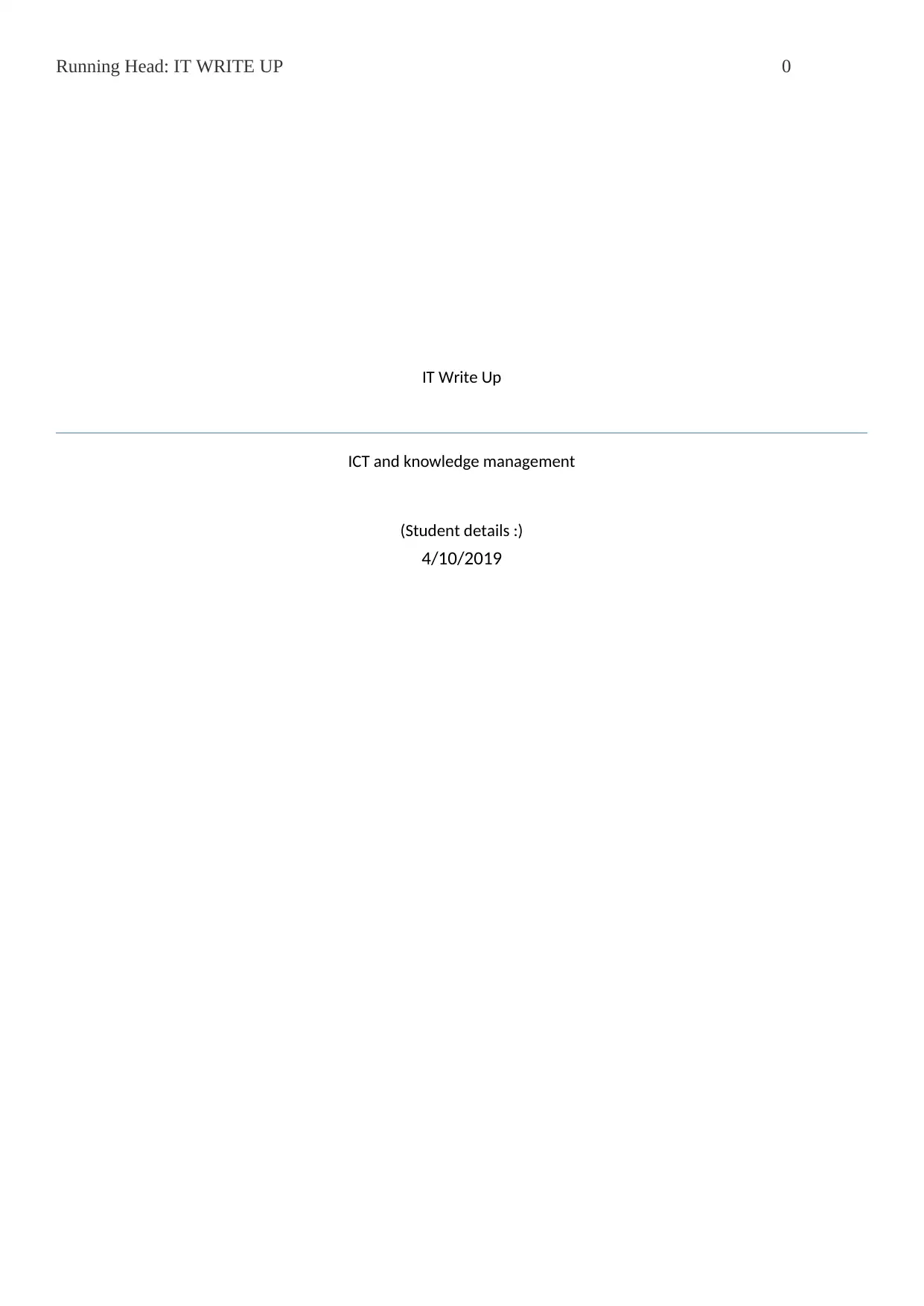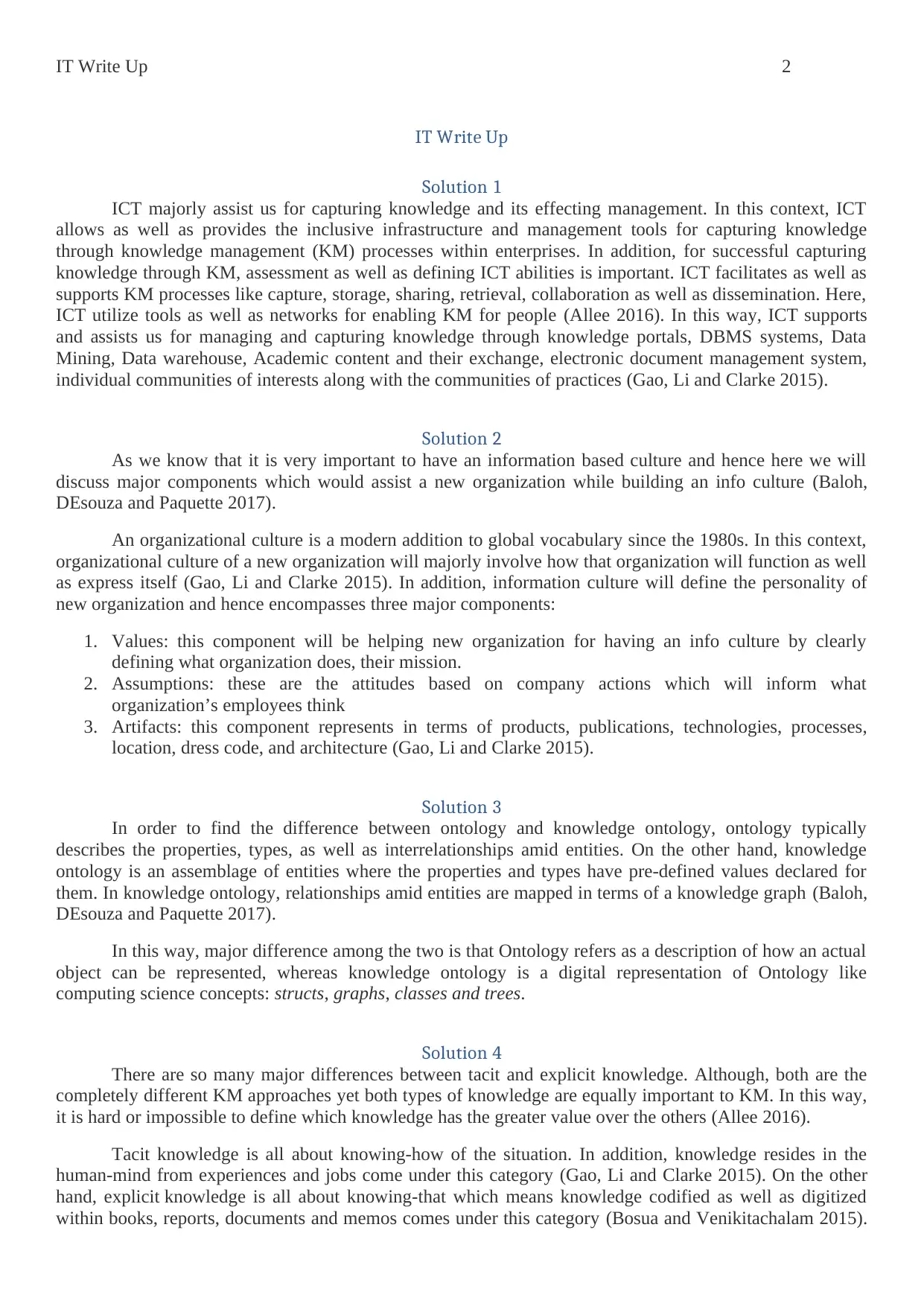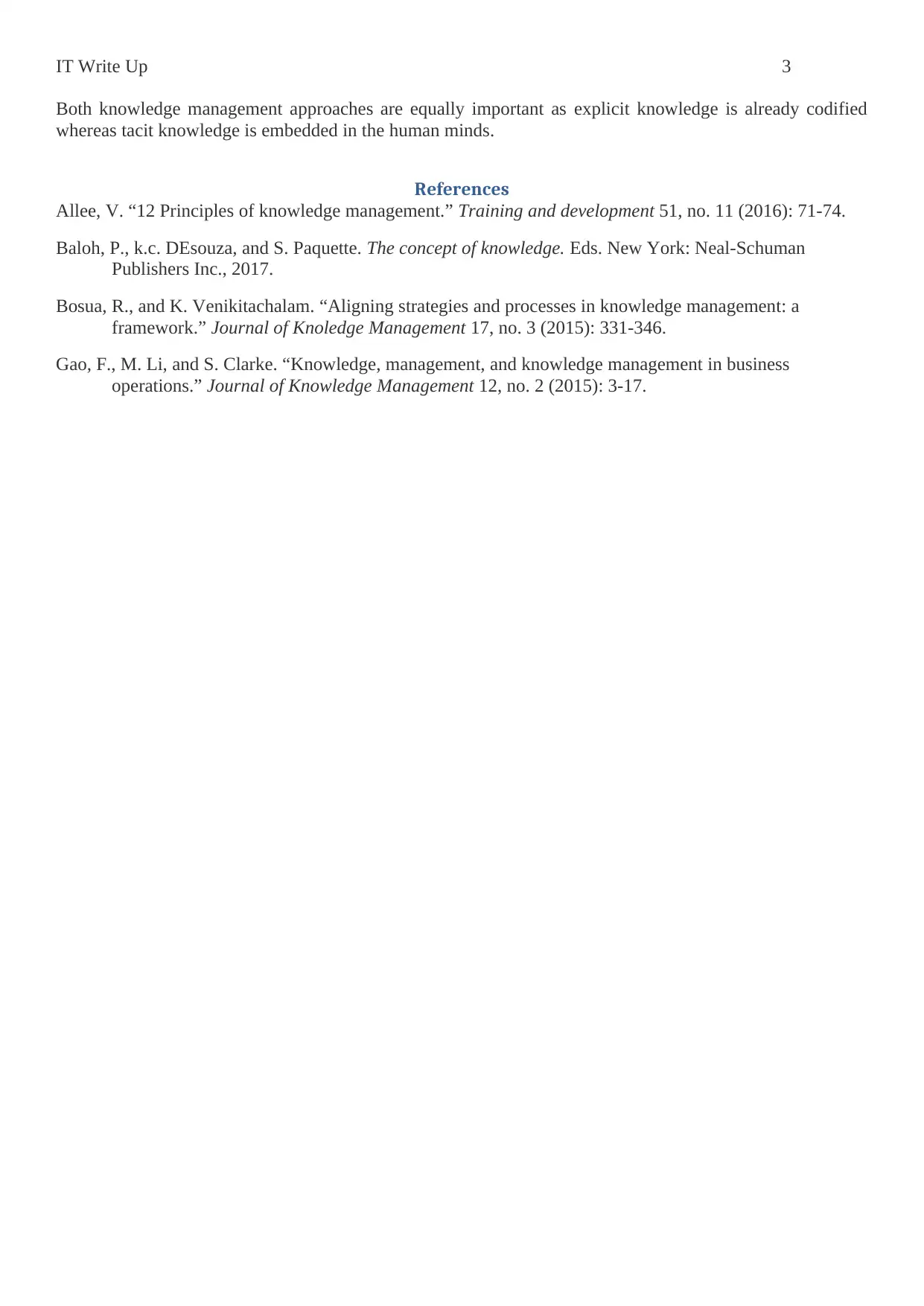IT Write Up on ICT and Knowledge Management: Solutions and Analysis
VerifiedAdded on 2023/01/18
|4
|817
|49
Report
AI Summary
This IT write-up explores the application of ICT in knowledge management, focusing on how ICT facilitates the capture, storage, sharing, and dissemination of knowledge within enterprises. It discusses the importance of ICT infrastructure and tools for effective knowledge management, including knowledge portals, DBMS systems, and data mining. The write-up also delves into building an information-based culture within an organization, outlining key components such as values, assumptions, and artifacts. Furthermore, it differentiates between ontology and knowledge ontology, highlighting their distinct characteristics and representations. Finally, the document examines the differences between tacit and explicit knowledge, emphasizing their equal importance in knowledge management. The write-up provides a comprehensive overview of these concepts, supported by relevant references.
1 out of 4






![[object Object]](/_next/static/media/star-bottom.7253800d.svg)